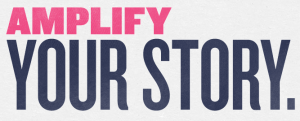

How important is telling a good story when using CD Baby?
It’s extremely important not only with CD Baby but anywhere. Music has become like all content: commoditized. It’s because of the barrage of information infiltrating our senses. Part of it is a result of piracy. But even legitimate streaming services like YouTube and Spotify don’t put much money in artists’ pockets. There is no shortage of music. If I add no more music to my collection, I will not be alive long enough to listen to all the music I have already. Let alone if I go on Pandora or Spotify or Rhapsody and grab an all-you-can-eat service. People are paying for it, but they are paying for it as part of an interaction. That interaction could be with other members of their social group real or virtual, or it could be part of supporting an artist. People want access and involvement, and that’s why live shows are holding up. A story is a way to bring your fans into your world and hopefully be able to sell to them.
What is the role of the press in amplifying a band’s story in this new era of the music business?
It depends on what is is, as Bill Clinton would say. What is the press? The press can be the New York Times or the press can be Pitchfork or Brooklyn Vegan. The press could be microblogs. The press could be Google searches, or the press could be from your peer set which is more important than all. It’s not that the press is dead. It’s that the large media conglomerates no longer have a monopoly on it.
If you mean the New York Times and Pitchfork… for fans of a genre or for passionate people who are actively engaged and eager to discover music, recommendations by name brand entities or name brand critics (such that they exist anymore) are still important, and also the sites which get a lot of traffic have enough of a fan base that they could help jumpstart a critical mass. The critical mass is the thing. There are record labels that can buy enough advertising or placement to put over something by Lady Gaga, but they also can spend millions and not put something over. There are no guarantees. Whereas someone like Rebecca Black can take over the world without any of that ad budget. The press can help amplify it but it has to have some critical mass for getting the press’ attention. Then it becomes a self perpetuating cycle.
Can you think of a band or two whose story has helped their career significantly?
Right now Rebecca Black is our biggest-selling CD Baby artist. Her story is she is a kid, 13 years old. She made a video and put it on YouTube and it got literally 150 million views and millions of dislikes. People went crazy over it making parody videos. Her song was performed by Stephen Colbert and The Roots on Stephen Colbert’s show. It became a huge phenomenon. One hundred fifty million is more people than probably saw Michael Jackson’s “Thriller” video when it came out. The story is that she was earnest but people said “who is this kid singing about the trouble of a kid that gets on the school bus or eats a bowl of cereal?” The scope of her musical talent and her tween angst was considered so limited that it was laughed at by enough people that it became a story in itself. There is the story, and then there is the story as to whether there is a story. I believe that she has caught on. The song—called “Friday”—is insidiously catchy. It’s one of these things that becomes viral; the story becomes the story.
I’ve been traveling all over the world for Book Baby lately and there is not a country I’ve been to that has not heard of this thing. It’s huge.
We have another artist, Lisa Lynn, who is a harp player. She basically performed in newborn wings of hospitals for mothers who have just delivered. She licensed her music to hospitals. That’s taking off in a more organic way as well.
Then there is the role of more traditional media, though in its new form. I’m talking about the role of American Idol and America’s Got Talent. CD Baby always has a Jackie Evancho or Michael Grimm. TV itself amplifies.
One of our big ones is Joe Purdy, who did well enough to finance buying his own house through CD Baby. And that’s kind of a story in itself as an independent artist. It didn’t hurt that shows like Lost and Grey’s Anatomy started licensing his music. He has taken off from there.
The above excerpt is from the new book titled “Amplify Your Story: Getting More Press Through the Art of the Pitch,” which you can download for free here from StoryAmp, a platform for connecting musicians and the press. The book includes specific methods for crystallizing the most compelling press angles for your band and music, as well as examples of additional currently active musicians who have gained traction through great storytelling and engagement.